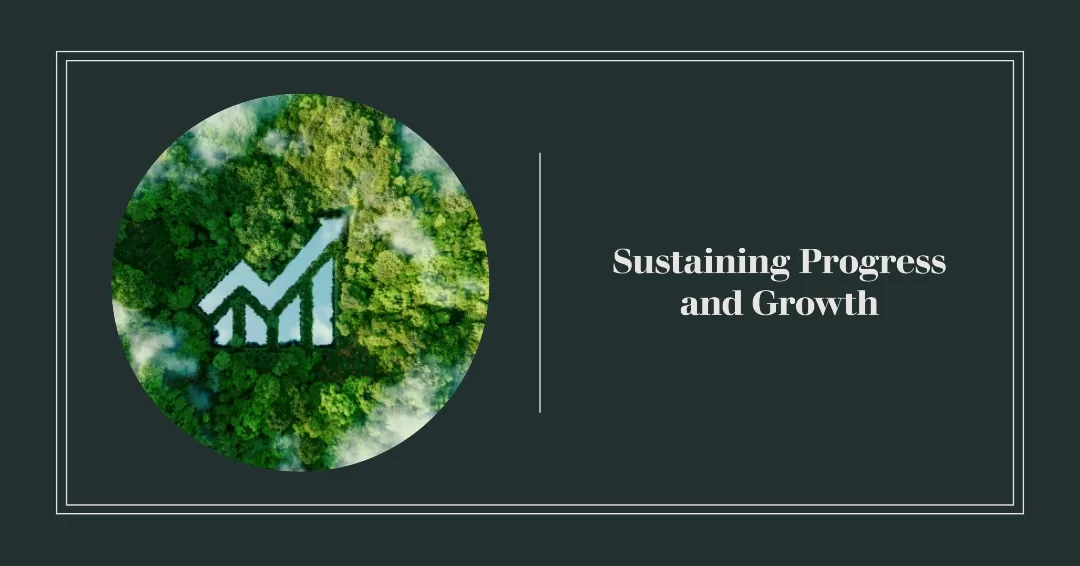You’re on the brink of adulthood, feeling both excited and anxious about what lies ahead. It’s a time of transition where you’re expected to make big decisions about your career, relationships, and future goals. But with so much uncertainty and pressure, it can be overwhelming to figure it all out on your own. That’s where life coaching comes in – a supportive partnership that helps you navigate this pivotal stage of your life.
Life coaching is like having a personal guide who helps you identify your strengths, passions, and values while providing practical tools to achieve your goals. Whether you’re struggling with self-confidence or communication skills, a coach can help you develop the resilience and mindset needed to succeed in any area of life. Through regular sessions and ongoing support, they can help you stay focused and motivated as you work toward creating the life you want. So if you’re ready to take charge of your future and unleash your full potential, keep reading to learn more about how life coaching for young adults can benefit you.
Table of Contents
Key Takeaways
- Life coaching for young adults helps navigate the transition into adulthood and empowers individuals to take control of their lives and realize their full potential;
- Effective communication techniques such as active listening and assertive expression, boundary-setting, and enhancing interpersonal skills can boost confidence in networking and building lasting relationships;
- SMART goal setting, prioritizing, and regular check-ins are crucial for achieving success and fulfillment in life, and setbacks can be used as an opportunity for growth and learning;
- Personal growth is a lifelong process that involves embracing new challenges and opportunities, seeking out mentors and being open to constructive criticism, taking risks, and stepping outside of one’s comfort zone;
Understanding the Challenges of Transitioning into Adulthood
You’re going through a tough time transitioning into adulthood, feeling like you’re standing at the edge of a cliff with no idea what’s on the other side. You’re not alone in this experience – many young adults feel overwhelmed by the immense changes that come with growing up. From navigating new relationships to finding your place in the workforce, it’s easy to feel lost and confused.
One of the biggest challenges of transitioning into adulthood is figuring out who you are and what you want out of life. It can be tempting to compare yourself to others and feel like you’re not measuring up, but remember that everyone’s journey is different. Take some time to reflect on your strengths, interests, and values – this will help guide you toward fulfilling career paths and meaningful relationships.
Another common challenge is developing healthy habits around money management, self-care, and productivity. It’s easy to fall into patterns of procrastination or overspending when there’s no one else holding us accountable. However, building discipline in these areas can lead to greater freedom in the long run. Consider working with a life coach or seeking resources online for guidance on goal-setting and habit-building.
Don’t forget that transitioning into adulthood is a process – it takes time and patience to find your footing in this new phase of life. Be gentle with yourself as you navigate these changes, celebrate small successes along the way, and keep an open mind about where your path may lead. With dedication and perseverance, you’ll find your way toward a fulfilling future full of possibility.
What is Life Coaching?

If you’re looking for guidance and support in achieving your personal or professional goals, a life coach could be the right fit for you. A life coach is a trained professional who works with individuals to help them identify their strengths and weaknesses, set achievable goals, and develop strategies to overcome obstacles. The benefits of working with a life coach include increased self-awareness, improved communication skills, and greater accountability in achieving your goals.
Definition and Role of a Life Coach
The role of a life coach is to provide guidance and support for young adults in defining and achieving their personal goals. A life coach helps you identify your strengths, weaknesses, values, and beliefs. They help you clarify your goals and create an action plan to achieve them. Here are some ways a life coach can assist you:
- Help you explore your passions and interests;
- Provide tools for self-discovery;
- Encourage exploration of new experiences;
- Support you through challenges;
- Offer perspective on difficult situations;
- Provide strategies for overcoming obstacles.
A life coach empowers young adults to take control of their lives and realize their full potential. They provide a safe space where clients can express themselves freely without fear of judgment or criticism. With the help of a life coach, young adults can gain confidence and direction as they navigate the uncertainties of adulthood.
Benefits of Working with a Life Coach
Partnering with a personal mentor can pave the path to progress and provide priceless perspective. Working with a life coach can offer a multitude of benefits that can help young adults navigate through the uncertainties of life. A life coach can help you identify your strengths, areas for improvement, and work with you to set achievable goals by providing you with their guidance, expertise, and support.
One of the primary benefits of working with a life coach is that they provide an objective perspective. They are not emotionally invested in your situation like friends or family members may be, which allows them to offer unbiased feedback and advice. Additionally, they have experience in helping others overcome challenges and achieve their goals, making them well-equipped to guide you toward success. With the support and guidance of a life coach, you will gain valuable insights into yourself and develop the skills necessary to make positive changes in your life.
Identifying Goals and Priorities
You need to take time to identify your goals and priorities if you want to achieve success and fulfillment in life. This is because having a clear understanding of what you want to accomplish will help you stay focused and motivated. It’s important to remember that your goals should be Specific, Measurable, Achievable, Relevant, and Time-bound (SMART). By setting SMART goals, you can create a roadmap for achieving your dreams.
Identifying your priorities is also crucial because it helps you determine where to focus your energy and resources. You may have many different goals, but not all of them are equally important. Prioritizing allows you to allocate your time and effort toward the things that matter most. When determining your priorities, consider what brings you joy, what aligns with your values, and what will have the greatest impact on your life.
Working with a life coach can be incredibly helpful when it comes to identifying goals and priorities. A coach can provide an objective perspective on what’s important in your life and help you clarify what you truly want. They can also guide you through exercises designed to uncover hidden desires or passions that may be holding you back from reaching your full potential.
Taking the time to identify your goals and priorities is essential for achieving success and fulfillment in life. By setting SMART goals and prioritizing based on what matters most to you, you’ll be able to focus on the things that truly matter. And if you’re struggling with this process or feeling stuck in any way, consider working with a life coach who can provide guidance and support along the way.
Building Confidence and Resilience
Now that you have a clear direction, it’s time to work on building confidence and resilience. Life can be full of unexpected challenges and setbacks, but with the right mindset, you can overcome anything.
Confidence is vital to achieving success in any area of life. When you believe in yourself and your abilities, you’re more likely to take risks and pursue your passions. Resilience is another essential trait for navigating life’s ups and downs. It involves bouncing back from adversity and learning from difficult experiences. A life coach can help you develop resilience by teaching coping skills like mindfulness meditation or cognitive-behavioral therapy techniques. By building resilience, you’ll be better equipped to handle whatever challenges come your way.
Remember that building confidence and resilience takes time and practice. Don’t expect instant results but keep working toward your goals with dedication and perseverance. With the guidance of a skilled life coach, you’ll learn valuable skills that will serve you well throughout your entire life – not just during young adulthood! So don’t hesitate – start investing in yourself today!
Improving Communication and Relationships

Improving communication and relationships is a crucial subtopic in life coaching for young adults. You can enhance your interpersonal skills by learning effective communication techniques, such as active listening and assertive expression. By building stronger connections with friends and family, you will feel more supported and fulfilled in your relationships. Developing healthy boundaries allows you to have more control over your personal space and prioritize self-care. Let’s explore these key points together to improve your communication and relationships!
Enhancing Interpersonal Skills
Feeling confident in your ability to connect with others can be a game-changer, especially when it comes to networking and building relationships that will last. Enhancing your interpersonal skills can help you achieve this confidence. Here are four tips to improve your interpersonal skills:
- Listen actively: One of the most important aspects of communication is listening. When someone is speaking, make sure you give them your full attention and avoid interrupting them.
- Be aware of nonverbal cues: Nonverbal communication, such as body language and tone of voice, can sometimes convey more than words themselves. Pay attention to these cues in order to truly understand what someone is trying to say.
- Practice empathy: Empathy involves putting yourself in someone else’s shoes and understanding their perspective. This helps build trust and mutual respect in any relationship.
- Learn conflict resolution: Disagreements are bound to happen in any relationship, but learning how to resolve conflicts effectively can prevent them from escalating into bigger issues.
By improving your interpersonal skills through these methods, you’ll be able to connect with others on a deeper level and build lasting relationships that will serve you well throughout life.
Building Stronger Connections with Friends and Family
When it comes to building stronger connections with friends and family, one key strategy is to make time for regular check-ins and quality conversations. Even if you have a busy schedule, taking a few minutes each day to connect with loved ones can go a long way in strengthening your relationships. It could be as simple as sending a text message or making a quick phone call to ask how their day is going.
Another important aspect of building stronger connections is being present in the moment when spending time with friends and family. Avoid distractions such as checking your phone or watching TV while you’re supposed to be engaging in quality time together. Show interest in what they have to say by actively listening and asking questions. By putting in the effort to build stronger connections, not only will you feel more fulfilled in your relationships, but you’ll also create lasting memories that will bring you joy and happiness for years to come.
Developing Healthy Boundaries
To develop healthy boundaries, you need to identify what behaviors are acceptable and communicate them assertively to others. This may seem discouraging in the beginning, but it’s essential for your wellbeing. Start by reflecting on what makes you uncomfortable or unhappy in your relationships with friends and family. Is it when someone constantly interrupts you? When they criticize or belittle you? Once you’ve identified these behaviors, think about how you can express yourself assertively without being aggressive. Use “I” statements like “I feel hurt when you interrupt me.” instead of accusatory language like “You always interrupt me.” Remember that setting boundaries is not about controlling others but about taking care of yourself.
When communicating your boundaries, be sure to do so clearly and calmly. Don’t apologize or make excuses for needing space or respect – remember that it’s your right as a person to set limits on how others treat you. If someone violates your boundary, don’t hesitate to enforce consequences such as ending the conversation or leaving the situation altogether. It may be difficult at first, but over time practicing healthy boundaries will lead to stronger relationships based on mutual respect and understanding.
Sustaining Progress and Growth

As you continue your journey of personal growth and success, it’s essential to maintain momentum and motivation. You’ve made progress already, so now it’s time to evaluate where you’re at and adjust your goals accordingly. Remember that this is a journey, not a destination, so keep up the good work and stay committed to continuing your growth.
Maintaining Momentum and Motivation
You may find it challenging to maintain momentum and motivation, but it’s important to remember that small steps in the right direction can lead to significant progress. It’s easy to get discouraged when you don’t see immediate results, but keep in mind that every effort you make toward your goals is a step forward. Take time to celebrate even the smallest victories, as this will help keep you motivated.
To maintain momentum, try setting daily or weekly goals for yourself. This will not only give you something concrete to work toward but also provide a sense of accomplishment once achieved. Additionally, surround yourself with positive influences and people who support your goals. Finally, remember why you started on this journey in the first place and use that as fuel for continued motivation.
Evaluating Progress and Adjusting Goals
Evaluating progress and adjusting goals is crucial for achieving success, as it allows individuals to take a step back and assess their current situation in order to make necessary changes. It can be easy to get caught up in the day-to-day grind, but taking time to reflect on your progress can help you identify areas where you need to improve and celebrate your successes. By setting specific, measurable goals and regularly evaluating your progress toward them, you can stay motivated and confident about achieving what you set out to do.
When evaluating your progress, it’s important to be honest with yourself about what’s working and what’s not. Don’t be afraid to adjust your goals if necessary – sometimes unexpected challenges or opportunities arise that require a change of course. Remember that setbacks are a natural part of the process, but they don’t have to derail you completely. Use them as an opportunity for growth and learning, and keep moving forward toward your dreams with determination and perseverance.
Continuing the Journey of Personal Growth and Success
Keep pushing yourself toward personal growth and success by embracing new challenges and opportunities as they come your way. Remember that the journey of self-discovery never truly ends, and there will always be room for improvement.
Here are a few tips to help you continue on the path to success:
- Seek out mentors who can guide you on your journey and provide valuable insights and advice;
- Be open to constructive criticism, as it can help you identify areas where you need to improve;
- Don’t be afraid to take risks and step outside of your comfort zone. This is where true growth happens.
Always remember that personal growth is a lifelong process, so don’t get discouraged if you encounter setbacks along the way. Stay motivated and focused on your goals, keep pushing yourself forward, and embrace every opportunity for learning and self-improvement. With dedication and perseverance, you can achieve anything you set your mind to.




